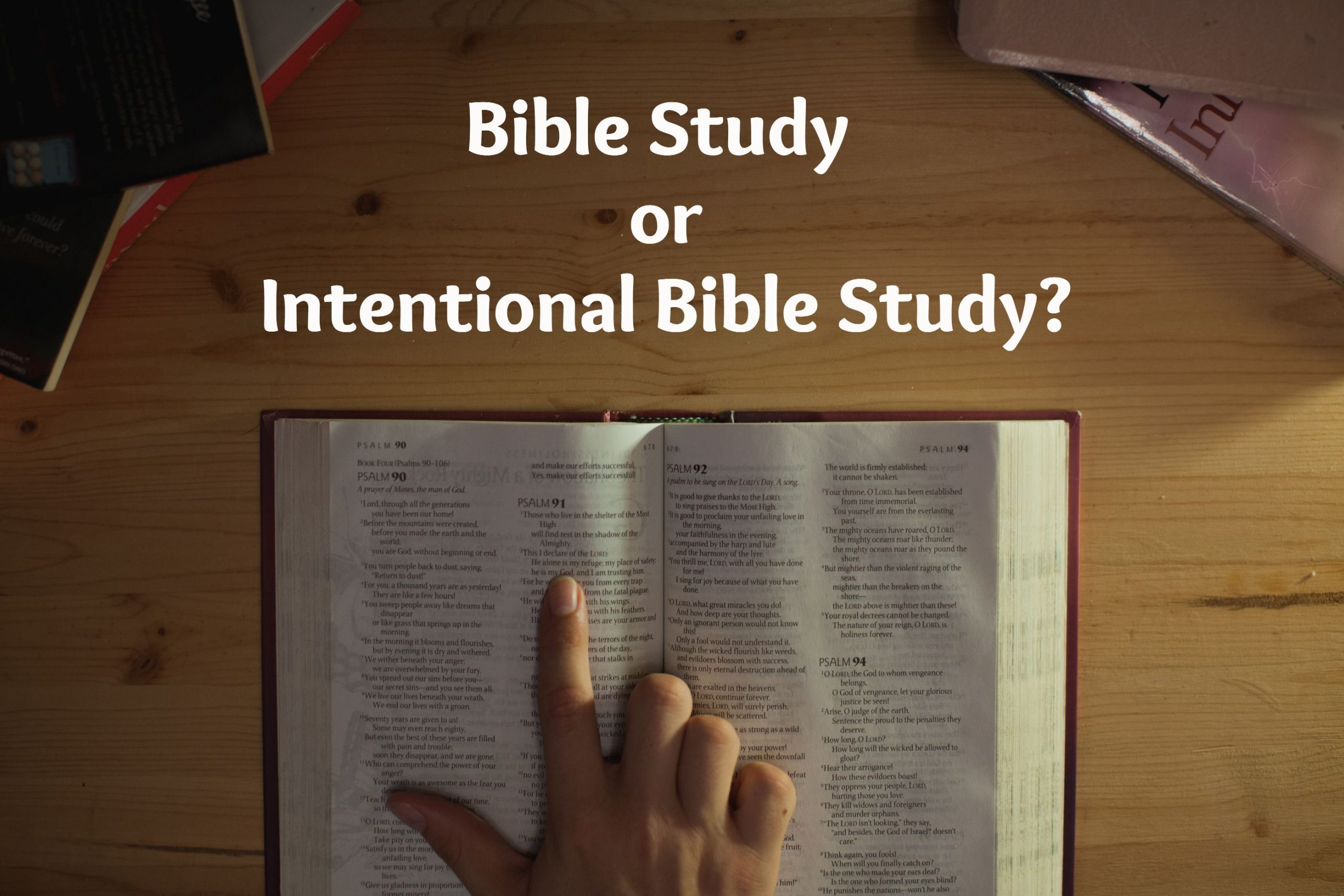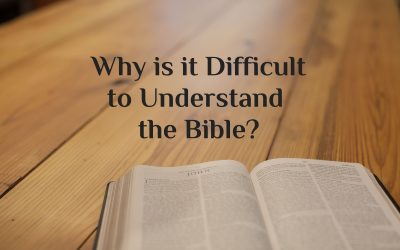Intentional Bible Study – Part 1
There’s Bible study and then there’s intentional Bible study. But did you know intentionality begins with several non-negotiables before you open your Bible?
A high view of God and His Word
Instead of a high view of God and His Word, many feel justified to dismiss the Bible because they disagree with it. Maybe you’ve heard someone say:
- I’m a Christian, but I believe there are many ways to heaven.
- I’m a Christian, but I only read the New Testament because the God of the Old Testament is harsh and legalistic, but the God of the New Testament is all about love and grace.
A Commitment to prioritize conviction over feelings
We get into trouble when feelings take precedence over settled belief by saying things such as:
- I know God said premarital physical relationships are wrong, but I love him and we’re going to get married anyway.
- I know God said we need to forgive, but he doesn’t deserve it.
How many of us are familiar with Proverbs 3:5-6:
“Trust in the Lord w/all your heart, and do not lean on your own understanding
In all your ways acknowledge him, and he will make your paths straight.”
Yet how many of us can quote the next verse—verse 7? “Be not wise in your own eyes; fear the Lord, and turn away from evil.” When we depend on our feelings, we’re being wise in our own eyes.
Understanding “context is king” when interpreting Scripture
- Before we open our Bible, are we prepared to be intentional about studying verses in context? For example, how many of us have quoted Philippians 4:13: “I can do all things thru Christ who strengthens me.”
A quick review of the verses directly before and after verse 13 reveals Paul is talking about contentment, especially in the context of suffering. Verse 12 tells us Paul learned to be content “in both abundance and suffering need.” How many of us are eager to quote this verse in the face of suffering and affliction?
- How about Isaiah 54:17: “No weapon formed against you will prosper”
It’s a wonderful thought, isn’t it? But if you ask family members of martyred Christians, they’ll be the first to tell you this verse refers to something other than physical weapons. Of course, there’s truth in this verse that applies to all believers. That truth is the assurance that while physical suffering and harm may come to us in this life, nothing and no one can take away the eternal salvation we have in Christ,
- OR Luke 6:38 (ESV): “Give, & it will be given to you. Good measure, pressed down, shaken together, running over, will be put into your lap. For with the measure you use it will be measured back to you.”
This verse is often taken out of context, applying it to financial giving and gain. The preceding verses reveal Jesus is speaking of the way we treat our enemies (verses 27-30, 35), the way we treat others (verses 31-34), and the giving of mercy and forgiveness (verse 36-37). The context is giving and receiving mercy and forgiveness, not money!
Intentional Bible study includes a willingness to ask ourselves questions such as:
- What does the verse before and after it say?
- What is the thrust of the paragraph?
- What is the intent of the chapter it’s placed in?
- Who is the human author of the book and what was his purpose?
- Who was the intended audience?
The difference between Bible study and intentional Bible study can make a vast difference in your life.
How intentional will you be today?






0 Comments